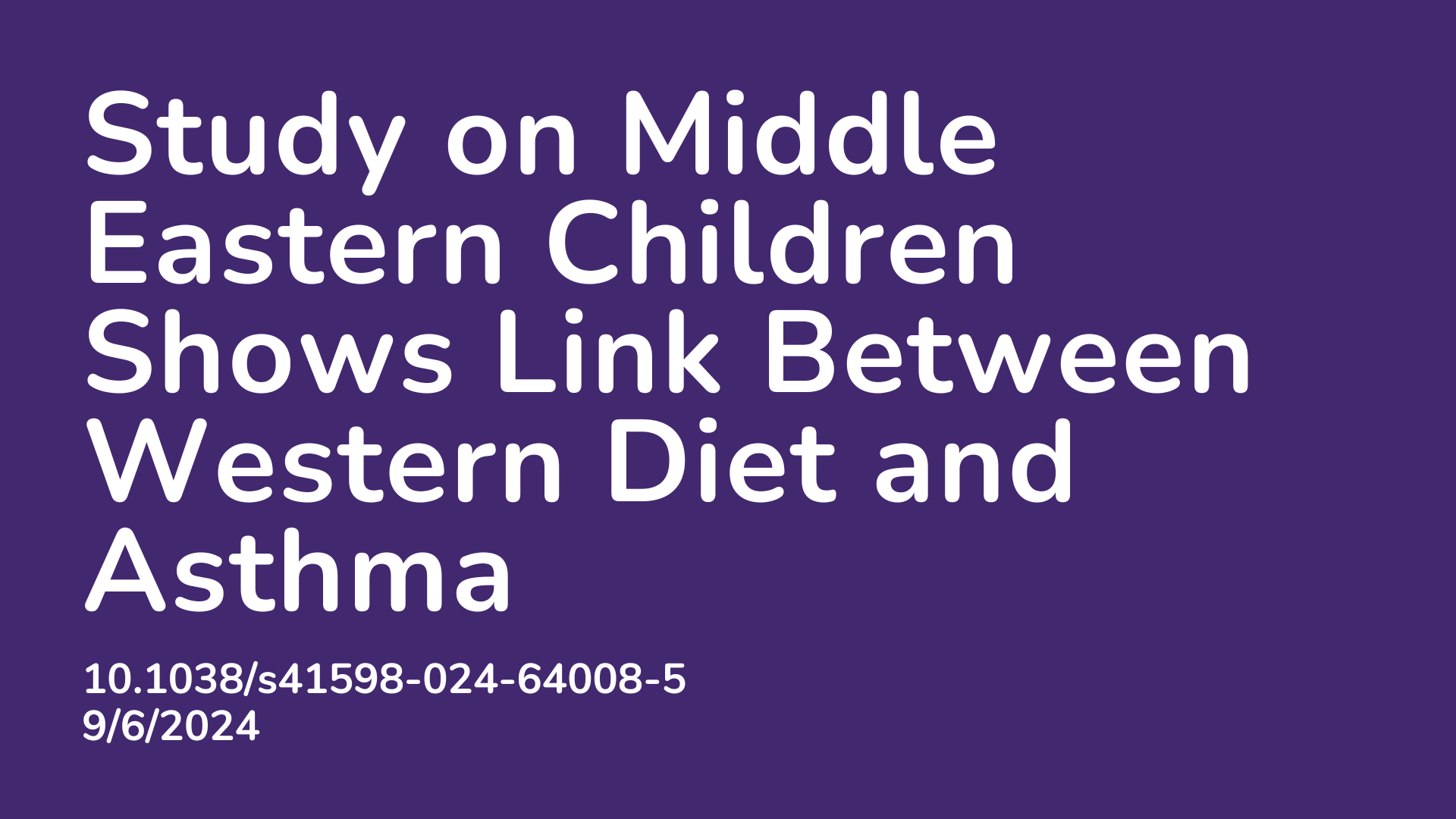Summary:
Asthma is a chronic inflammatory disease affecting 300 million people globally, with its prevalence on the rise. It commonly affects children and is influenced by various risk factors such as lack of breastfeeding, socio-economic status, infections, environmental exposures, and diet. Diet plays a crucial role in both preventing and managing asthma. While a Mediterranean diet may lower asthma risk, diets high in fat and sugar can increase it. Western diets, characterized by processed foods and low fruit and vegetable intake, are pro-inflammatory and linked to obesity, exacerbating asthma symptoms. In the Middle East, dietary trends are shifting towards Western-style diets, yet their impact on childhood asthma in the region remains unstudied. This cross-sectional study aimed to explore the association between a Western diet and asthma among Middle Eastern children. Dietary intake of elementary and high school children was assessed using a questionnaire focusing on Western dietary patterns, which included foods such as eggs, margarine, butter, sugar, fast foods, soft drinks, snacks, sauce, and chocolate. A total of 7,667 children participated in the study. Boys who adhered more closely to a Western dietary pattern were found to have a higher risk of wheezing in the past 12 months. This association was observed across the entire study population. These findings support the hypothesis that a Western diet is associated with an increased risk of wheezing in children.
Abstract:
Several risk factors including environmental exposures, socioeconomic status, and dietary factors including dietary patterns have been considered for childhood Asthma. The present study tried to examine the association between a western-style pattern and the likelihood of asthma and its symptoms in Yazd, Iran. In the present cross-sectional study, dietary intakes of elementary and high-school children were obtained through a validated GAN questionnaire. The GAN questionnaire, derived from the ISAAC questionnaire was used to assess the symptoms of allergic diseases and their related risk factors. A western dietary pattern score considered 9 food groups including chicken eggs, margarine, butter, sugar, fast foods, soft drinks, snacks, sauce, and chocolate. In total 7667 children aged 10.9 ± 3.35 years were included in the current investigation. Boys with higher adherence to western dietary pattern had a higher risk of wheezing in the past 12 months (OR 1.37, 5% CI 1.01–1.87, P = 0.04) and this association was also observed in the whole population (OR 1.30, 5% CI 1.05–1.60, P = 0.01). However, after adjustment for confounders this relation did not remain significant in boys. Our results support the hypothesis that a western dietary pattern is associated with an increased risk of wheezing in the past 12 months in children with asthma. Future prospective studies are needed to confirm this finding.
Article Publication Date: 9/6/2024
DOI: 10.1038/s41598-024-64008-5



